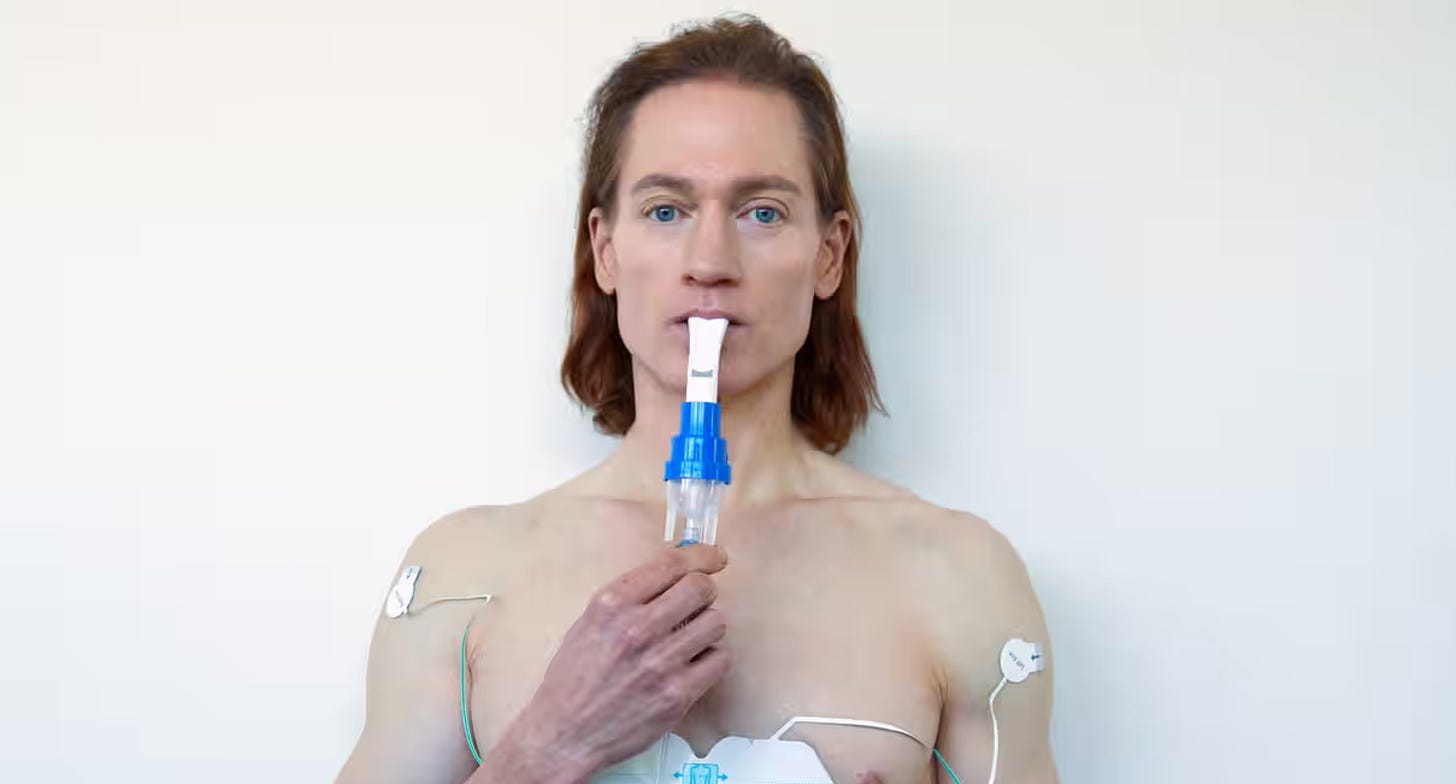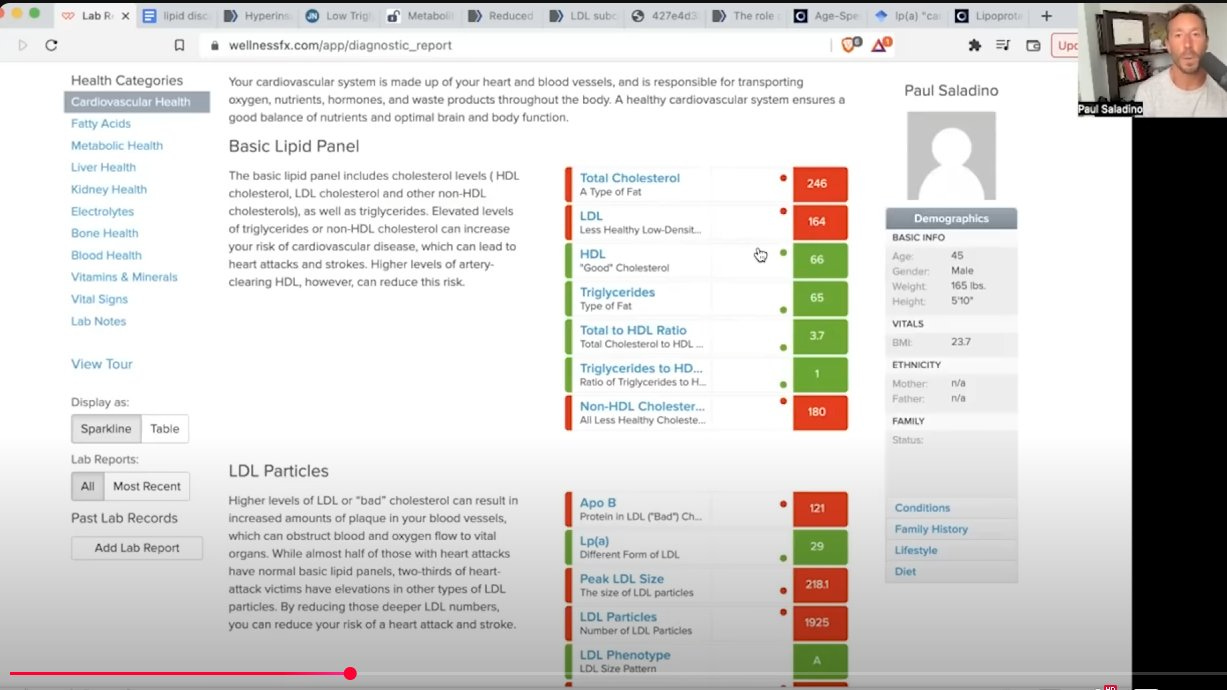Twitter/X has cured me of any health cringe within my soul. Seeing overconfident takes on diet and anti-aging reflected back to me on this particular platform has been a wake-up call like no other, and has inspired me toward a new direction: have fun, none of us really know what’s going on, my way is not a better way, be kind to one another, be helpful, be loving.
While vigorous debate about health and diet has always been a feature of the human experience — allopaths and naturopaths used to have raucous and sometimes violent debates at conferences before the Rockefeller takeover of medicine a century ago — social media has made the topic all the more annoying and confusing. I remember getting into naturopathy out of necessity, experiencing a confusing set of ailments in my late teens and early 20s, a most horrible age to experience anything less than radiant health. I left school and volunteered at a naturopathic retreat clinic that specialized in reversing serious chronic disease, most notably diabetes, but also cancer and heart disease.
It was run by an actual MD, Ivy League credentialed, who had a mid-career change of heart and took a big turn toward naturopathy, essentially rejecting allopathy entirely. The results I saw in his patients were nothing short of miraculous, all sorts of incurables cured. Furthermore, the atmosphere was lively — everyone got along, shared ideas, philosophies, and stories — everyone was always running a little self experiment. There was dogma, of course, but largely, the curiosity took over, and led those willing down endless rabbit-holes, some more fruitful than others.
Even in today’s hyper-connected age, I learned and witnessed health modalities during this year of my life that I still haven’t seen promulgated online. Makes me wonder what we’ve lost even further back, and what we stand to lose by fighting online about health in lieu of sharing, connecting, archiving, etc.
Bryan Johnson
I’ve been wanting to write about Bryan Johnson for a while now. He’s an oddity, to say the least. He sold Venmo to PayPal for 800 million dollars, and immediately pivoted to documenting his longevity journey on the internet. He spends millions a year on testing, training, experimenting on his own lifelong “n=1” trial. I believe he’s recently monetized his venture, selling high quality products, but it’s clear that money is not a primary motivator. He truly is captured by living forever, or “don’t die”, as he calls it — essentially the name of his brand.
I generally like Bryan, but I have quite a few critiques of his approach, so I might as well get that out of the way:
He’s a technocrat, and believes in technology is the biggest driver of health in the 21st century. He’s obsessed with metrics, wearables, ‘sleep scores’, optimization, toys — he believes that perfect health can be achieved by optimizing a set of parameters and biomarkers. To be fair, if any of us health nerds had a 9-figure net worth, I’m sure we’d all be doing way more of this stuff. But Bryan thinks this is the way, and perhaps he’s missing the forest for some trees.
He’s a materialist. His number one mantra, again, is “don’t die”, and he even says “survive another 30 years, and you might be able to live forever”. This, of course, ties into the aforementioned technocratic thrust of the program, that we’ll be able to reach health singularity, not just in isolated tech but as humans, that we can reach escape velocity and leave the gravity of death behind. This, of course, is frightening as a concept. Bryan is an ex-Mormon, and speaks often about leaving the cult of Mormonism, but arguably, he’s just founded a new one. The dream of living forever (in human form) is of course a philosophical cliché. If you’re willing to question materialism, you might realize we already do live forever, just not in the way Bryan is talking about. Life extension is a noble goal, especially when combined with spiritual growth, a life purpose, and a focus on family connection. Yet extending life for the sake of one’s own human life itself seems fraught with psychosomatic dangers. Also, we know by now that materialism is just plain false: we are not our physical shell!
He’s hyper-optimized, arguably over-optimized. He eats the exact same meals every day, down to the calorie. He never varies his routine. He, of course, has the data to back up that this “works”, insofar as satisfying numbers on a spreadsheet goes. However, there may be something missing from varying one’s diet and routine with the seasons, with nature, with farming and agricultural patterns. We aren’t robots, and this technological approach should be at best used to supplement our lives, not run it entirely. It also can lead to potentially erroneous conclusions — for example, Bryan avoids the sun like the plague. He has all the face scans, UV damage indicators, and data to back up that his is the “correct” approach, but these things just don’t pass the sniff test. Perhaps Bryan has over-optimized enough to avoid certain forms of hormesis entirely, to his detriment.
He doesn’t use the top longevity herbs. This one’s more of a personal gripe, but the man with unlimited resources doesn’t take reishi, he sho wu (the top longevity herb ever discovered), astragaloside IV, schizandra, and other time-tested herbs. This ties into the other critiques, that his overall program is lacking wisdom.
That being said, I do believe Bryan, barring accidents, will live longer than the average human. Also, if you spend any time with his output, it’s clear he’s got his heart in the right place. He pokes fun at himself constantly. He’s not a villain (at least intentionally), and truly wants to better humanity. Caveat - this of course, does not mean that his overall philosophy is correct, or will avoid producing harm! We’ve seen bankrupt ideologies like “effective altruism” do immense harm to our world — think Bill Gates, Sam Bankman-Fried … the road to Hell is paved with good intentions, and all that.
However, Bryan’s haters are quite vicious, especially from the based side of the online world. Bryan eats a plant-centric diet, which is of course a huge faux pas. He is constantly described as a vampire, and upon seeing his policy on sun exposure, can you blame the haters? His experiments are considered creepy, especially turning his son into his personal blood boy, a tech-bro millionaire favorite — see the show Silicon Valley, which predates Bryan’s online documentations.
Bryan, largely for the critiques I listed above, sits starkly in opposition to the intuitive, naturopathic, “lindy” approach to creating individual health. I find myself in between these two extremes, in fact, I believe most of us do. If you’ve ever gotten a blood panel showing vitamin, mineral, and hormone levels, are you a technocrat? I would argue “no”, but it’s worth noting that such a luxury wasn’t even available 100 years ago! I’m sure in another 100 years, the tools available to every man/woman/child will blow our current approach out of the water, and I’m sure that even the crunchy hippies of that era will utilize them! So a big critique of current biohacking and optimization, of which Bryan is the poster boy, is merely a timescale critique. We used to make fun of joggers in the 60’s, often voraciously so — now, jogging is seen as the bare minimum entry-point into physical activity. I suspect a lot of the current biohacking trends will be par for the course sooner than later, especially when it comes to tracking metrics.
However, I see the naturopathic side becoming even more of a force in the modern world. The critiques of Bryan Johnson are coming from a very real feeling of estrangement with the modern world, which has overseen technology and medicine leading to nominally longer lives, nominally better stats on mortality across the board (even this can be disputed), all while our chronic disease rates have exploded. We just witnessed a mass propaganda campaign to inject every living human with experimental mRNA technology, which Bryan Johnson fell for, by the way. He regrets this, and I’m satisfied with his critique of the zeitgeist. Still, Rare Candy could have saved you some time and grief!
I fully support anyone who wants to retvrn and eat ancestrally, live locally, and embrace tradition. It’s your birthright to have the same degree of vitality that your great-great-grandparents achieved, all while poaching the best that modern medical tech can offer you. We all do this calculus throughout our lives, deciding what modern innovations we apply. It’s never the same stream twice, even on the macro-humanity scale, and it’s impossible, nor desirable for most of us, to completely become luddites. Yet those that do are often thriving more than we can fathom!
Paul Saladino
Look, I just want to say that I think the world is a better place with Paul Saladino in it. He educates the masses, he’s created an awesome lifestyle for himself, he surfs, enjoys nature, and enjoys natural foods in their natural state. I find him entertaining even though I often disagree with his rationalizations, such as “broccoli is toxic”. Also, can we just admit that we’re using these health gurus largely for entertainment at this point?
I reserve the right to clown on Saladino, however — furthermore, he’s welcome on Rare Candy Podcast for a lighthearted discussion any time — same goes to Bryan Johnson. The inspiration for this piece came from witnessing them feud a bit on Twitter:
I don’t recall Bryan Johnson saying “seed oils are good for human health”, but I could be wrong. I know he consumes a moderate amount of olive oil daily, and zero seed oils. Let’s get one thing out of the way, some of these numbers are truly impressive, and they should be! He spends millions of dollars a year to achieve them! Glutathione, lung strength, VO2 mac, and bone mineral density all stand out to me. His bench press is not bad, especially considering the main critiques of his approach are the veganism and caloric restriction aspects. I need to know if Paul can bench 240 pounds! There’s a nonzero chance that he cannot, and we deserve to know.
Paul responded by saying his bloodwork is “perfect”, and links to a few YouTube videos of him analyzing his panel. There are quite a few red flags though, which he seems content with handwaving away. His kidney function is moderately reduced, with an estimated glomerular filtration rate (eGFR) of 63 — generally considered stage 2 chronic kidney disease for someone his age (well under 60). It also dropped from a score of 80 just two years ago, when it should be over 100. This is extremely concerning, and Paul just glosses over these results. He also has low CO2 levels, and donates blood regularly to lower his heme iron burden.
It’s entirely possible that Paul is eating too much animal protein, and it is burdening his kidneys. He is trending toward kidney disease. I don’t wish this on him, and I want Paul to live a long, healthy life.
Paul has already ditched an ideological diet of pure carnivore after it wreaked havoc on his hormone levels — a very common phenomenon. To his credit, he added more fresh fruit and carbs into his diet, and healed his issues. He’s shown he is willing to adapt and refine, which I believe creates the conditions for success in this field.
Bryan Johnson’s hormones, while perfect, are essentially artificial. He supplements T and thyroid hormones to dial in the perfect level. While I do believe having good levels trumps being ideologically opposed to exogenous treatments, it is worth noting that Bryan is truly “bionic”, and the long-term effects of this are unknown. Paul is creating his results purely with diet and exercise, which is more in line with what most people actually want.
HOT TAKE: Bryan should go on Paul’s podcast, and Paul should take the same tests Bryan does and publish his results, and they both should discuss it. Who wouldn’t love to see that? Again, these are entertainers we’re talking about!
His Apo B of 121 is concerning, especially in context of elevated total cholesterol. Apo B is a much better indicator of cardiovascular risk than cholesterol itself. I’ve written about how we do not need to experience heart disease, and how even extreme heart disease is reversible. This is accomplished through eliminating saturated fat, cholesterol, and animal protein from the diet (as well as processed foods in general). This approach has worked for tens of thousands of people all over the world, with almost laughable consistency.
My main question, that I have yet to get a satisfactory answer from the based health gurus, is:
If saturated fat, cholesterol, and animal protein are benign, why does removing them from one’s diet consistently reverse disease?
My second question would be:
Even if you’re the world’s biggest advocate of meat and dairy consumption, wouldn’t you advocate for this healing diet at least temporarily (1-2 year) to be on the safe side, show some plaque regression, get some baseline biomarkers, before embarking on a healthy omnivorous diet? If one isn’t ideologically captured (ha!), the clear answer is yes.
Carnivores, keto dieters, and heavy meat eaters are placing a wager that high Apo B, cholesterol, and LDL levels are fine and essentially mean nothing. The cost of losing this wager is early death. I say this as someone who is a seed oil critic, non-vegan, and deep deep distruster of “settled science”. There are plenty of ways to mitigate heart disease risk without going vegan, too. I don’t believe Paul is doing such things — he believes vegetables and non-fruit plant compounds are toxic. I hope he reconsiders this ideology. My own diet is designed to literally extract as much plant (herb) compounds as humanly possible.
Not trying to make this a “BRP Heart Disease 2.0” article. I do believe there is nuance in the heart disease debate. However, if your numbers are extremely high, it’s very likely you’re on the road to damaging your heart (yes, even with a CAC score of 0).
Also not trying to make this a “defend Bryan Johnson/critique Paul Saladino” piece. I believe both men offer flawed advice, and actually compliment each other in strange ways. They are ideological opposites. Gun to my head, and I’d rather have Paul’s life of eating ribeyes and papayas after a two hour surf session, and die at 70, than live to 100 trapped in Bryan Johnson’s Bay Area SmartHome. That life isn’t for me.
People are always going to think Bryan Johnson is weird, but I also am convinced we’ll all be bio-optimizing like him to some degree in 100 years, and we’ll probably be better for it. It makes no sense to have an elevated kidney disease signal and hope for the best.
Also, let me just say — as part of a podcast that is incredibly critical of scientific orthodoxy — there is the difference between “trusting the science” (bad) and “reading a blood test”. A blood test, or any biomarker test, while not infallible, is still good data that we can consciously use to guide our health.
Follow your intuition when it comes to your health, but don’t let you intuition fly in the face of reality dancing in front of your eyes. Be grateful for your food, your family, and your faith in Higher Power. With love, and to your health!
-Psi
PS - we’ll spare the Peaters … this time …









